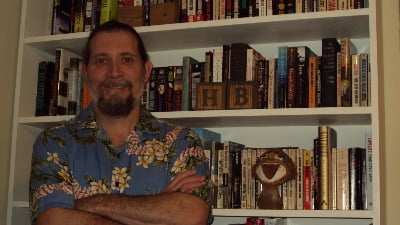Writers talk about inspiration and where story ideas come from; characters and their names and quirks and personalities; locations and locales, whether they are gritty or exotic; where the story is going and how to get there.
Writers talk about agents and publishers and query letters and pitches; self-publishing versus traditional publishing; their blog or their web site or their Facebook page or their platform.
Listen to a writer’s conversation and you’ll hear the words “genre,” “voice,” “style.” You will hear impassioned mention of favorite authors, struggles with editing and revision, and the next writing conference or organizational meeting.
What you don’t seem to hear is any mention of the work week, a pending vacation, how the family is doing, a great new recipe. These are mundane items, to be sure. But writers are Human. They live as others, paying bills and taking out the garbage. They do laundry and mow the lawn.
It is that Human aspect that seems to blend into the background when the Art and Business of writing takes the lead in any conversation. This is ironic considering that the Human experience is so prominent in good writing.
 N.M. Kelby’s book “The Constant Art of Being a Writer” intimately outlines the ongoing process of writing, from inspiration through marketing and the myriad steps in between. There is much truth to the word “constant” in the title.
N.M. Kelby’s book “The Constant Art of Being a Writer” intimately outlines the ongoing process of writing, from inspiration through marketing and the myriad steps in between. There is much truth to the word “constant” in the title.
But consider that it is important to contemplate the other side of the equation. Are you a writer who deals with his life or a person trying to become a writer? Is it necessary to differentiate? Should you separate these two entities or merge them into one?
We do not live in an age of patronage from wealth purveyors of art, grants and scholarships notwithstanding. The majority of writers are spouses and employees, possibly homeowners with family and friends, a series of responsibilities that determine our continued existence and functionality within society.
No one denies the fantasy: Wake up. Have some coffee and breakfast. Settle in for a bit of writing or research or editing. Make appointments. Send query letters. A little blogging. A little social networking. No clock to punch for someone else. Perhaps, one day, it will be so.
In the meantime, we must acknowledge, develop, and integrate the Human and the Artist into one being. We must recognize that our experiences and daily routines inform our writing by giving us the detail that enhances our stories. The dialogue we hear is spoken by our characters. The grocery store or shopping mall we visit becomes a locale in our scene.
Alternately, developing our sensitivities and sensibilities, allowing our imaginations to soar and accepting a creative impulse, will most certainly make us better people and more fully realized Human Beings.
This is the Complete Writer.
H.B. Berlow studied filmaking and creative writing at the University of Miami in the 1980s and was involved in the Boston Poetry Scene in the mid 90s. He has been a member of KWA since 2007. He was recently the featured writer on Keyhole Conversations, Writers Who Cook. His novels, Kansas Two-Step and Quick, are available at Amazon, Smashwords, and Lulu. H.B. also blogs at The Tikiman Says…
mid 90s. He has been a member of KWA since 2007. He was recently the featured writer on Keyhole Conversations, Writers Who Cook. His novels, Kansas Two-Step and Quick, are available at Amazon, Smashwords, and Lulu. H.B. also blogs at The Tikiman Says…


Excellent post H.B.! I’m personally one that hasn’t had to get out and work away from the home, so I have to heavily rely on those outtings, people-watching, and eavesdropping to capture that real world feel. 🙂
Balance is one of the hardest things for me to achieve. Life is such a roller coaster ride sometimes that something always gets neglected. My first choice is cleaning & cooking. But that isn’t always possible and my reading and writing time gets scrunched. Thank you for writing about the human part of the artist, we sometimes forget that and fall out of our routines (seats). It’s easy to do. Good reminders, HB.
But . . . I want to talk about writing. I get to talk about groceries and alternators all day long. Nobody wants to talk about writing until I get around other writers.
That said, WONDERFUL article. Without the day to day, how do we create a world for our readers? In my opinion, you answered that succinct . . . sucksink . . . very well.
I love your perspective, Dude! When I talk to civilians (non-writers), references to writing are an afterthought. When writers talk amongst themselves, we talk writing first, then all the minutae of life. I try to remember that all those household chores allow my brain time to cogitate on my prose.
Great submit, very informative. I ponder why the opposite specialists of this sector do not realize this. You must continue your writing. I’m sure, you have a huge readers’ base already!|What’s Happening i’m new to this, I stumbled upon this I’ve found It absolutely useful and it has helped me out loads. I am hoping to contribute & help other customers like its aided me. Great job.